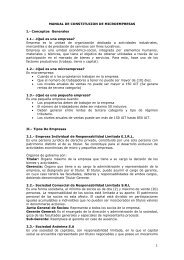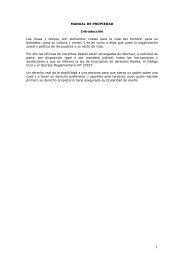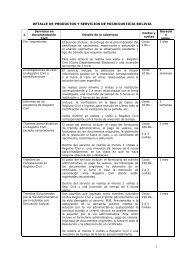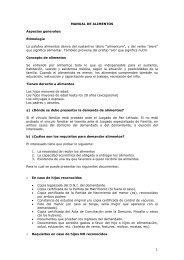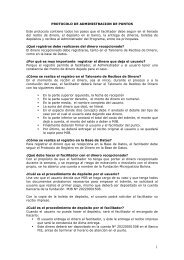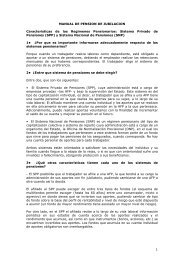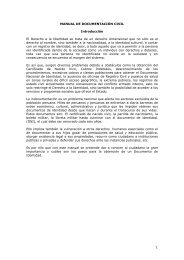ICISS report - International Coalition for the Responsibility to Protect
ICISS report - International Coalition for the Responsibility to Protect
ICISS report - International Coalition for the Responsibility to Protect
You also want an ePaper? Increase the reach of your titles
YUMPU automatically turns print PDFs into web optimized ePapers that Google loves.
69<br />
8. THE RESPONSIBILITY<br />
TO PROTECT: THE<br />
WAY FORWARD<br />
FROM ANALYSIS TO ACTION<br />
8.1 This <strong>report</strong> has been about compelling human need, about populations at risk of<br />
slaughter, ethnic cleansing and starvation. It has been about <strong>the</strong> responsibility of sovereign<br />
states <strong>to</strong> protect <strong>the</strong>ir own people from such harm – and about <strong>the</strong> need <strong>for</strong> <strong>the</strong> larger<br />
international community <strong>to</strong> exercise that responsibility if states are unwilling or unable <strong>to</strong><br />
do so <strong>the</strong>mselves.<br />
8.2 Past debates on intervention have tended <strong>to</strong> proceed as if intervention and state<br />
sovereignty were inherently contradic<strong>to</strong>ry and irreconcilable concepts – with support <strong>for</strong><br />
one necessarily coming at <strong>the</strong> expense of <strong>the</strong> o<strong>the</strong>r. But in <strong>the</strong> course of our consultations<br />
this Commission has found less tension between <strong>the</strong>se principles than we expected. We<br />
found broad willingness <strong>to</strong> accept <strong>the</strong> idea that <strong>the</strong> responsibility <strong>to</strong> protect its people from<br />
killing and o<strong>the</strong>r grave harm was <strong>the</strong> most basic and fundamental of all <strong>the</strong> responsibilities<br />
that sovereignty imposes – and that if a state cannot or will not protect its people from such<br />
harm, <strong>the</strong>n coercive intervention <strong>for</strong> human protection purposes, including ultimately<br />
military intervention, by o<strong>the</strong>rs in <strong>the</strong> international community may be warranted in<br />
extreme cases. We found broad support, in o<strong>the</strong>r words, <strong>for</strong> <strong>the</strong> core principle identified in<br />
this <strong>report</strong>, <strong>the</strong> idea of <strong>the</strong> responsibility <strong>to</strong> protect.<br />
8.3 The most strongly expressed concerns that <strong>the</strong> Commission did hear in <strong>the</strong> course<br />
of our year-long consultations around <strong>the</strong> world went essentially <strong>to</strong> <strong>the</strong> political and<br />
operational consequences of reconciling <strong>the</strong> principle of shared responsibility with that of<br />
non-intervention. These concerns were of three different kinds. They might be described,<br />
respectively, as concerns about process, about priorities, and about delivery, with a crosscutting<br />
concern about competent assessment of <strong>the</strong> need <strong>to</strong> act.<br />
8.4 As <strong>to</strong> process, <strong>the</strong> main concern was <strong>to</strong> ensure that when protective action is taken, and<br />
in particular when <strong>the</strong>re is military intervention <strong>for</strong> human protection purposes, it is undertaken<br />
in a way that rein<strong>for</strong>ces <strong>the</strong> collective responsibility of <strong>the</strong> international community<br />
<strong>to</strong> address such issues, ra<strong>the</strong>r than allowing opportunities and excuses <strong>for</strong> unilateral action.<br />
The Commission has sought <strong>to</strong> address <strong>the</strong>se concerns by focusing, above all, on <strong>the</strong> central<br />
role and responsibility of <strong>the</strong> United Nations Security Council <strong>to</strong> take whatever action is<br />
needed. We have made some suggestions as <strong>to</strong> what should happen if <strong>the</strong> Security Council<br />
will not act but <strong>the</strong> task, as we have seen it, has been not <strong>to</strong> find alternatives <strong>to</strong> <strong>the</strong> Security<br />
Council as a source of authority, but <strong>to</strong> make it work much better than it has.<br />
8.5 As <strong>to</strong> priorities, <strong>the</strong> main concern was that attention in past debates and policy making<br />
had focused overwhelmingly on reaction <strong>to</strong> catastrophe – and in particular reaction by<br />
military intervention – ra<strong>the</strong>r than trying <strong>to</strong> ensure that <strong>the</strong> catastrophe did not happen<br />
in <strong>the</strong> first place. The Commission has tried <strong>to</strong> redress this imbalance by emphasizing over<br />
and again <strong>the</strong> integral importance of prevention in <strong>the</strong> intervention debate, and also by<br />
pointing out <strong>the</strong> need <strong>for</strong> a major focus on post-conflict peace building issues whenever



